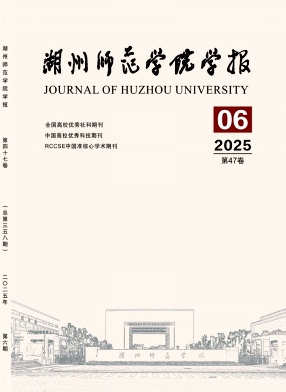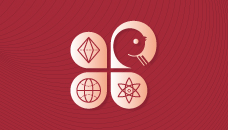
In September 2023, General Secretary Xi Jinping proposed to carry forward the spirit of educators at the National Symposium of Outstanding Teachers. With the new mission of building a leading country in education, teachers should do the following to carry forward the spirit of educators: establishing the ideal and aspiration of serving the country with utmost sincerity to cultivate talent for the nation; becoming exemplary scholars and teachers who unify professional competence and ethical integrity; acting as wise educators who teach students in accordance with their aptitudes, ensuring holistic development for all students; persisting in innovation as the primary driving force to nurture students' creative spirit; becoming benevolent teachers who are dedicated to their work, forging the soul of teaching through educators' love; and engaging in educational research with a focus on Chinese context, developing virtues. All this enables teachers to devote themselves to teaching and contribute to building China into a thriving country.
In recent years, China has experienced a continuing decline in birth rates, leading to a gradual contraction of the school-age population and significant changes in educational demand. Therefore, as key institutions for training basic education teachers, local normal universities are facing multiple challenges, such as the shrinking number of students and increasing pressure on graduate employment. These issues, in turn, have undermined their public reputation and institutional attractiveness, resulting in decreased financial support and marginalization within the higher education system. In response to these challenges, local normal universities could strengthen their institutional capacity through diversified enrollment strategies, adjustments in academic structure, and the development of distinctive academic disciplines. Furthermore, they should enhance their role in continuing teacher education, engage in regional education governance, and contribute to the development of a lifelong learning system, thereby reshaping their educational value and social recognition.
In the context of a declining school-age population caused by the low fertility rate, local normal universities face challenges such as further improving teacher training quality, increased competition for graduate employment, and a shrinking student body, all of which are critical to their survival and development. In response to the challenges, based on an analysis of the specific characteristics of the school-age population decline, combined with international experiences, the research identifies the following adaptive adjustment paths for the development of teacher education in local normal universities: enhancing normal students' ability to teach small classes, improving their competency in cross-grade teaching and promoting the formation and transmission of positive views on marriage and childbearing. This will help facilitate a gradual transformation from a focus on scale benefits to an emphasis on quality orientation in local normal universities, while optimizing the allocation of regional educational resources.
The teacher's role has both intrinsic value and a responsibility for its reproduction. The reproduction of the teacher's role emerges from three contexts, including the structural reproduction of the teacher's role from Foucault's concept of micro-power, the cultural reproduction of the teacher's role in the context of Bourdieu's cultural capital, and the relational reproduction of the teacher's role in Marx's theory of reciprocal creation. However, in the real world, the reproduction and construction of the teacher's role face two concerns, one related to temporal issues and the other to contextual factors. These concerns manifest as the constraints placed on the reproduction of the teacher's role due to its solidification, and the disorder of the reproduction of teacher's role triggered by the chaos of the fields around them. To address these concerns, it is necessary to transcend the traditional models and encourage the creative transformation of the reproduction of the teacher's role, define the humanistic perspective, reclaim the subjectivity of teacher role reproduction, and focus on the public engagement with the evolving nature of teacher's role reproduction.
Rural teachers are typical emotional laborers who face high levels of emotional demands. Owing to the unique environment of rural community, their emotional labor is particularly influenced by multiple interconnected factors, leading to varying degrees of emotional labor challenges. Ecological system theory, which emphasizes the interaction between individual development and environmental factors at various levels, provides a strong theoretical foundation and framework for examining the emotional labor challenges faced by rural teachers. The study finds that rural teachers currently face a variety of challenges related to emotional labor. Interaction with direct stakeholders lead to alienation of emotional labor norms. Imbalanced relationships among stakeholders result in emotional labor conflicts. Unfavorable external conditions increase the emotional labor burdens. Cultural value conflicts heighten emotional labor challenges. Strategies to alleviate rural teachers' emotional labor challenges include: establishing collaborative mechanisms among stakeholders to enhance synergy, improving relationships between entities to strengthen coordination; improving support network construction to provide stronger assistance; and promoting the reconstruction of rural culture to foster system support.
The rapid development of artificial intelligence is profoundly reshaping the educational ecosystem. While enhancing educational efficiency, AI also gives rise to ethical risks at multiple levels. From the perspectives of technology ethics, the ethics of responsibility, and educational ethics, this paper systematically analyzes how ethical risks arise in the educational application of artificial intelligence. Based on this analysis, the paper proposes legal and ethical regulatory approaches tailored to various stakeholders. The study emphasizes the need to strengthen multi-dimensional regulatory mechanisms-covering algorithm governance, data security and technology ethics-through collaborative efforts among government, research institutions and educational subjects. It advocates for reconstructing the ecosystem of “human, technology, education” to achieve a harmonious integration of educational values and technological advancement, thereby promoting sustainable and healthy development of AI-powered education.
Regional educational technology management institutions serve as pivotal forces in advancing educational digital transformation. This study focuses on the development of regional educational technology management institutions in the context of educational digitalization, conducting investigations of 80 districts and counties in Zhejiang Province. The findings reveal three core challenges: unclear functions and dispersed responsibilities of these institutions; a shortage of personnel coupled with structural imbalance; and a lack of coordination and limited operational effectiveness. Countermeasures are proposed to optimize organizational architecture, clarify institutional functions and improve the management team. These recommendations are expected to provide theoretical insights and operational guidance for regional institutions navigating digital transformation challenges.
Digital transformation is recognized as a pivotal strategy for advancing rural educational equity, improving educational quality, fostering educational innovation, revitalizing rural education, and achieving rural revitalization. However, this transformation faces significant challenges, including uneven resource allocation caused by inconsistent policy implementation; disconnection between schools and the society resulting in rural educational disparities; the lack of teachers' digital skills and family support. These challenges could be systematically addressed through promoting digital equity and strengthening policy enforcement; rebuilding the connection between schools and society to deepen content reform; cultivating teachers' digital capabilities and optimizing families' digital ecosystems.
In the context of digital intelligence technologies reshaping the design education ecosystem in higher education institutions, the Huizhou Residential Architecture Workshop at Anhui University of Arts centers around the core principles of “technology as the foundation and culture as the soul”, constructing an innovative teaching model of “digital data collection, intelligent deconstruction, and virtual-to-real regeneration.” Technical tools such as parametric modeling in SketchUp, AI pattern generation, and 3D exploded views are used to systematically deconstruct the formal characteristics of Huizhou architecture, enabling the transformation of traditional craftsmanship from tacit knowledge to explicit knowledge. A three-dimensional approach involving typological photography, surveying manuscripts, and exploded views enhance students' design thinking on “the interdependence of form and structure”, bridging the gap between technological application and cultural understanding, and providing a replicable practice model for design education in applied universities.
Sino foreign cooperative education in higher vocational colleges plays a crucial role in supporting China's strategy of strengthening education, and it is also a key to cultivate technical and skilled talent with international competitiveness. Currently, four problems exist in this educational model: insufficient synergy between objectives, resources, and curriculum, resulting in poor vertical integration of the talent cultivation system; the industry-education collaboration mechanism needs to be further developed, and horizontal integration of the educational pathway requires strengthening; poor transitions between stages of the apprenticeship system, leading to an unclear career progression path; a lack of international experience among faculty, with faculty development still needing improvement. In response to these problems, the following strategies have been implemented: adopting a “three-pronged guidance, three dimensional integration” model for cultivating international technical and skilled elites; constructing a full chain talent development pathway with four fold coordination and dual-track progression; consolidating the modern apprenticeship system with a three-level, four-category, and five -part approach; developing a curriculum system for cultivating composite internationalized talent; and improving faculty development for the cultivation of composite internationalized talent
In the context of cultural inheritance and curriculum reform in the new era, the teaching of thematic group reading based on revolutionary classics in primary schools reveals unique values. It helps build a system for the inheritance of revolutionary culture, enhances students' critical thinking and value judgment, and reinforces the humanistic nature of Chinese education. However, current teaching practice faces three key challenges: insufficient teacher professional development and teaching strategies, an imbalance in students' cognitive engagement, and a lack of coordination between school curricula and support systems. To overcome these challenges, the proposed solutions include integrating revolutionary texts into teacher development programs, optimizing students' cognitive learning models, and promoting the development of school curricula.
Teaching the “academic text seminar” learning task cluster is an innovative approach to pedagogy. It requires careful consideration of students' needs, teaching conditions, and the specific characteristics of the text itself. This approach is grounded in principles of accuracy and research-based methods, combining full-text reading with in-depth monograph analysis. Only by fully understanding the monograph's core content and structure through complete reading can appropriate teaching methods be effectively applied. Teachers must understand the key features of the monograph and have their own research insights, enabling them to effectively guide and support students' learning. Additionally, active teaching assessments are essential. The teaching process in the “academic text seminar” learning task cluster is fundamentally a dynamic, interactive process in which both teachers and students make progress.
Middle school classic literature teaching faces issues such as fragmented resources, formulaic perspectives, and superficial learning, which can be addressed through reconstruction in classroom teaching. Using “Lin Chong Shelters from the Snow in the Mountain Spirit Temple” as a case study, this study proposes a threefold reconstruction approach. The first approach is to break the barrier of single-chapter teaching by constructing a thematic unit that integrates five additional chapters. This will guide students to read systematically and structurally, presenting the logical progression of Lin Chong's character development. The second approach is to shift the analytical perspective from the traditional image of snowstorms to the threefold symbolism of fire—hope, disaster, and rage—revealing the theme of oppression leading to revolt. The third approach is to engage students critically with literary figures, moving beyond simple plot memorization through the design of probing questions. Through these reconstructions, literary figures come to life, enhancing the effectiveness of teaching classic literature in middle schools.
Morality and Rule of Law is a key subject in primary schools for implementing the fundamental task of educating students with virtues. In this process, educational drama plays a significant role: at the cognitive level, it helps students understand and internalize moral concepts; at the emotional level, it fosters empathy and aligns their values; and at the behavioral level, it guides moral practice and the development of moral habits. The integration of educational drama into this course should follow a three-stage progression: 1) cognitive development through task-driven learning and value clarification; 2) practical application through situational immersion and embodied experience; 3) application and elevation through moral development and the integration of knowledge and practice. These three stages, though distinct, work together to enhance students' core competencies and promote a holistic development of their knowledge, emotions, will, and actions.
Supportive tools play a crucial role in project-based learning. They help students build their cognitive scaffolds, improve learning efficiency, enhance learning efficiency, develop critical thinking skills, and foster overall development. In project-based learning, teachers can build a teaching toolbox through three approaches: first, by selecting effective existing tools to address real-world problems; second, by designing discipline-specific tools that support the development of students' knowledge and skills; and third, by offering a range of tools that support personalized learning. Providing supportive tools is not the final goal of project-based learning. By reserving general tools, offering suitable ones, and removing tools when necessary, teachers can nurture students' abilities, helping them move from “assistance” to “self-reliance”.








